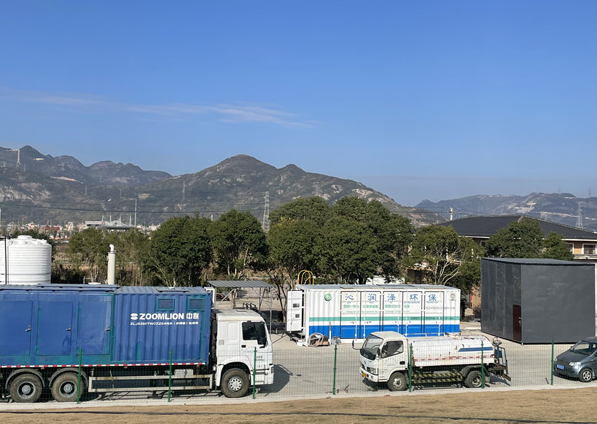Garbage leachate refers to a high concentration organic wastewater formed by the moisture contained in the garbage itself, rain, snow, and other moisture entering the landfill site, deducting the saturated water holding capacity of the garbage and covering soil layer, and passing through the garbage layer and covering soil layer.
The composition of landfill leachate is complex, with significant changes in water quality and quantity, high concentrations of organic matter and ammonia nitrogen, and imbalanced microbial nutrients. The landfill leachate treatment equipment has effectively solved the problem of garbage treatment and has been widely promoted in recent years. Let's take a look together:
Advantages of landfill leachate treatment equipment

1. Reduced surplus sludge production
The process of landfill leachate treatment equipment can be operated under large capacity load and low sludge load, and the surplus sludge yield is low (theoretically zero sludge discharge can be achieved), thus reducing the cost of sludge treatment.
Landfill leachate treatment equipment occupies a small area and is not subject to installation restrictions
The bioreactor can maintain a higher concentration of microbial biomass, and the treatment unit has a higher volume load, which greatly saves the floor space. Simple process, compact structure, save floor space, and is not limited by the installation site, suitable for any occasion, and can do ground, semi-underground and underground.
2. The water quality of effluent is stable
Because the membrane separation efficiency is high, the separation effect is much better than the traditional sedimentation tank. After treatment, the water quality is extremely clear, suspended solids and turbidity are close to zero, bacteria and viruses are greatly removed, and the water quality of effluent is better than the standard of living miscellany water quality promulgated by the Ministry of Construction. (CJ25.1-89) can be directly reused as non-potable water.
At the same time, the membrane separation can also completely shut down the microorganism in the bioreactor, so that the higher microsystem in the system can be maintained.
Biological concentration not only improves the overall removal efficiency of pollutants in the reactor, but also ensures good effluent quality. At the same time, the reactor has good adaptability to various changes of influent load (water quality, quantity), and can resist impact load. Stably obtain high quality effluent water quality.
3, convenient operation and management, easy to achieve automatic control
The process of landfill leachate treatment equipment realizes the complete separation of hydraulic residence time and sludge residence time, and the operation control is more flexible and stable. It is a kind of new technology which is easy to realize equipment and microcomputer automatic control in sewage treatment, so as to make operation and management more convenient.
4, easy to convert from the traditional process
Urban landfill leachate treatment equipment technology can be used as an advanced treatment unit of the traditional sewage treatment technology, and has a broad application prospect in the field of sewage treatment of urban secondary sewage treatment plants.
5, can remove ammonia nitrogen and difficult to degrade organic matter
Because microorganisms are completely shut down in the bioreactor, it is beneficial to the growth of slow-growing microorganisms such as nitrifying bacteria, which improves the nitrification efficiency of the system. At the same time, the hydraulic retention time of some refractory organic compounds in the system can be increased, which is beneficial to improve the degradation efficiency of refractory organic compounds.